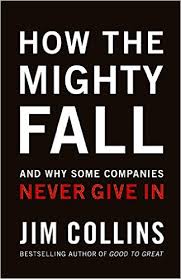7 lessons to learn from Chipotle’s crisis

Last Friday at 6 p.m., I drove past my local Chipotle restaurant. I was surprised to see only a few customers standing in line. A couple of years ago, lines regularly stretched past the front door from lunchtime until closing, seven days a week.
Until recently, Chipotle was a darling of investors for its rapid growth and consistent financial returns, while customers loved its “Food with Integrity” concept. Over the past couple of years, sales dropped dramatically after a series of well-publicized instances of customers becoming sick.
This spate of food-borne illnesses wasn’t the cause. Leadership failed.
What were the underlying problems of this once high-flying company, and what lessons can your business learn from them?
Lesson #1: Denial is not your friend
I was astonished to read this comment from Chipotle Founder and CEO Steve Ells in a Wall Street Journal article: “Employees have been so busy with the food-safety changes that they haven’t had time to keep up with cleaning tables,” Ells said.
Really? I stopped eating at Chipotle months before the tainted food issues occurred. Why? Because every location I visited was dirty. Tables were littered with food remnants, trash containers were overflowing and the restrooms needed attention. If the cleaning practices in public spaces were so poor, why would I expect them to be any better in food preparation areas?
I contacted Chipotle’s customer service several times with my concerns. Their “well-oiled” marketing machine responded: “We are monitoring the situation, and here is a coupon for a free burrito.” My translation: “We don’t care about cleanliness, but free food might pacify you.” I made a few subsequent visits, but wasn’t surprised when no improvements had been made.
Denial about the true operations of his restaurants allowed Ells to live in a made-up world—until the real-world bit back, hard.
Lesson #2: Listen to your customers
If Chipotle had listened to its customer complaints (including mine!) and acted upon them, hygiene concerns could have been addressed much earlier. My online search for “Chipotle tables” yielded many photos of, and comments about, dirty tables—and they dated well before the restaurant’s food-borne illness outbreaks. Customers loudly and publicly complained. Unfortunately, no one at the top apparently cared enough to listen.
These recent Twitter feeds were displayed on Chipotle’s home page on April 17, 2017:

Two days later, Chipotle’s live twitter feed disappeared completely from its home page. What caused its removal? Was it a technical issue, or was it another case of company executives putting their fingers in their ears? (I counted 12 complaints in one hour on the company’s Twitter page.)
Lesson #3: Pay attention to your organizational design
Peter Drucker said, “Structure follows strategy.” In other words, how an organization is designed determines how it performs. Chipotle’s strategy was to distinguish itself with its “Food with Integrity” concept, served in a “distinctive interior design” to bring “features from the realm of fine dining to the world of quick-service restaurants.”
Leadership structured their organization accordingly by creating key processes to execute their strategy. Unfortunately, each of these processes contained major flaws:
- A promotion process where the most efficient employees were promoted. Employees were rewarded for their focus on short-term profitability at the expense of customer satisfaction. (Chipotle recently admitted that its promotion process is one of its biggest weaknesses.)
- Marketing and social media campaigns that created an alluring image—which was often inconsistent with its customers’ experience—to meet their unsustainable rapid growth goals.
- Vendor programs that were admirably strict about food quality, but not focused on food safety.
- An intentionally insular board that failed to challenge its CEOs.
This structure was unintentionally, but predictably, designed to undermine their business.
Lesson #4: Take personal responsibility for mistakes
President Truman had a wooden sign on his desk that read “The buck stops here!” He internalized the belief that the CEO is ultimately responsible for the success or failure of his organization.
Chipotle’s delayed response to its customers’ illnesses eroded its integrity and customers’ trust. Ells, in one of two apology videos, buried a quick, easy-to-miss apology in a 2 ½ minute explanation of Chipotle’s new food safety program. Sadly, it was better than his scripted, apathetic apology on the Today show.
To win back customers, it was essential for Ells to take personal responsibility for Chipotle’s problems and admit his contribution to its declining performance. Neither has been evident, and Chipotle reverted to more of its well-worn type of marketing campaigns.
Lesson #5: The skills that made you a success are not the skills you need to move forward
Chipotle’s world changed dramatically when their food repeatedly (and sensationally) made their customers ill. Instead of learning from their mistakes, they doubled down on their original strategies.
Lesson #6: Be vigilant about oversight
Chipotle must eliminate guesswork and latitude in executing its restaurant safety program. For example, I’ve never seen evidence of Chipotle employees following a checklist, a standard tool used in most restaurants.
Also, their restauranteur program makes it impossible to identify, or talk to, a restaurant manager. Instead, all customer complaints are forwarded to Chipotle’s corporate office, further distancing employees’ personal accountability from customer satisfaction.
Customers should have immediate access to a manager who has the authority to immediately resolve their issues. Managers’ performance should be based upon customer satisfaction, restaurant cleanliness, food hygiene and then profitability. Corporate management should randomly inspect individual stores and talk with customers to ensure compliance with all standards.
Lesson # 7: Be humble. Success is fragile and never guaranteed
Hubris kills companies. Jim Collins wrote about the organizational side of hubris in his book, How the Mighty Fall. Stage 1 of organizational failure is “hubris born of success.” It “sets in when people become arrogant, regarding success virtually as an entitlement, and they lose sight of the true underlying factors that created success in the first place.”
kills companies. Jim Collins wrote about the organizational side of hubris in his book, How the Mighty Fall. Stage 1 of organizational failure is “hubris born of success.” It “sets in when people become arrogant, regarding success virtually as an entitlement, and they lose sight of the true underlying factors that created success in the first place.”
The key ingredients needed to transform hubris into humility include remorse, personal responsibility, internal reflection and emotional intelligence. In his failed attempts to revive Chipotle, Ells still has not demonstrated any of them.
Looking ahead
Chipotle recently released its 2016 financial results. Sales were 13% below those for 2015. In response, Ells said, “In the upcoming year, we intend to continue to simplify and improve our restaurant operations, utilize creative marketing to rebuild our brand, and further the rollout of our digital sales efforts. Focusing on those initiatives will restore diners’ affinity for the Chipotle brand.”
What has changed in Ells’ new strategy? Hubris and denial hid problems from him originally, and it sounds like they continue to do so. I wonder if he really learned anything from Chipotle’s recent crises? More importantly, what can you learn? I’d love to hear your thoughts.
Category: Leadership
Tags: Alignment, customer relations, public relations, trust

